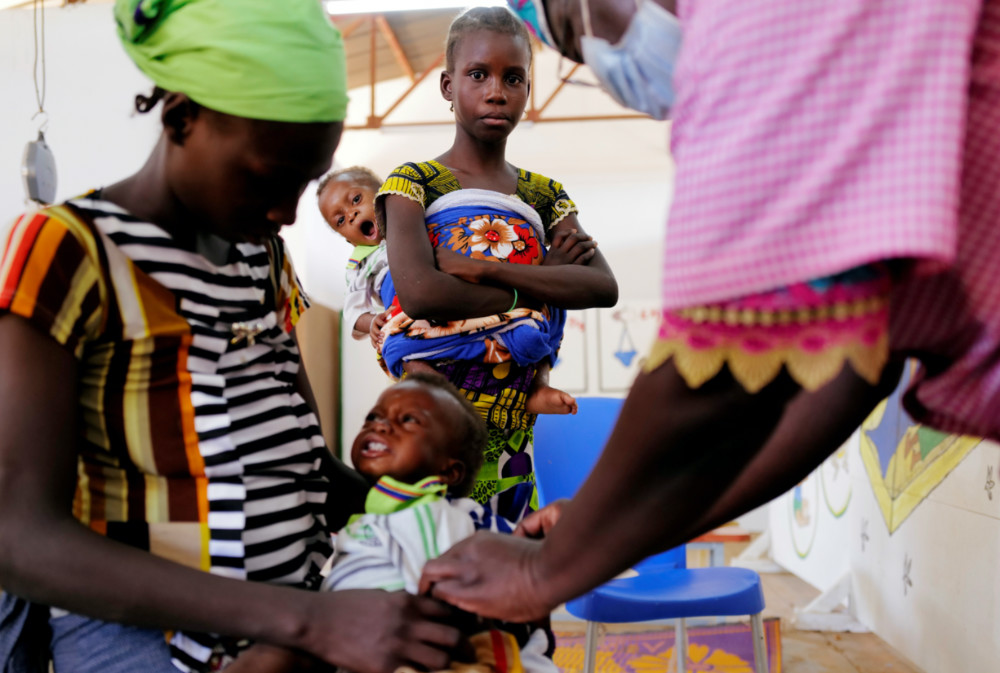Dakar, Senegal/Geneva, Switzerland
Reuters
Food prices in West Africa have jumped more than 30 per cent since last year to their highest levels in nearly a decade due to coronavirus lockdowns and a decline in cereal production, the World Food Programme said Friday.
More than 31 million people are expected to become food insecure between June and August, raising the risk of a health emergency as the region contends with conflicts and COVID-19, the UN organisation said in a statement.

Zonabo Sore, 11, who fled from attacks of armed militants in Sahel region carries her 16-month-old nephew Housein, who suffers from malnutrition, as his twin brother Hassan is being examined at hospital in Kaya, Burkina Faso, on 23rd November, 2020. PICTURE: Reuters/Zohra Bensemra/File photo.
“Soaring prices are pushing a basic meal beyond the reach of millions of poor families who were already struggling to get by,” said Chris Nikoi, WFP’s Regional Director for West Africa.
Across the region, prices of local staples such as rice are nearly 40 per cent higher than five-year averages and in some countries staples cost more than double their average price, WFP said.
Attacks by Islamist militants have escalated in the Sahel region, an arid belt to the south of the Sahara Desert, driving people off farmland in Burkina Faso, Mali and Niger and cutting access to supplies.
WFP said almost 6.5 million people in those countries faced crisis or emergency levels of food insecurity in coming months.
The Sahel region alone accounts for approximately half of the 10 million children under five in West Africa who are acutely malnourished in West Africa, WFP said.
About 800,000 of the nearly 2.7 million people WFP has identified as being at risk of famine are in Nigeria’s arid northeastern states, where millions have been displaced by the long-running Boko Haram insurgency.
Up to 65,000 people in north-eastern Nigeria have fled their homes after an assault by armed groups on a border town on Wednesday, while attacks that appear to be targeted have forced a temporary halt to aid operations, UN agencies said.
Local officials and a resident said on Wednesday that at least eight people had been killed in the attack on Damasak by suspected Islamists, and that hundreds had fled across the border to Niger, a few kilometres away.
“Following the latest attack on Wednesday 14 April, the third in just seven days, up to 80 per cent of the town’s population – which includes the local community and internally displaced people – were forced to flee,” Babar Baloch of the UN refugee agency UNHCR, told a Geneva briefing.
Jens Laerke, spokesman for the UN Office for the Coordination of Humanitarian Affairs (OCHA) told the same briefing that aid operations had been temporarily suspended.
“The situation on the ground is extremely critical and if this continues it will be impossible, maybe for longer periods of time, for us to deliver aid to those who desperately need it,” he said.
Laerke added that humanitarian workers appeared to be targets, amid reports of house-to-house searches for aid workers and the burning of their offices. UNHCR has relocated its staff from Damasak town due to the risks, Baloch said.
– With EMMA FARGE.





